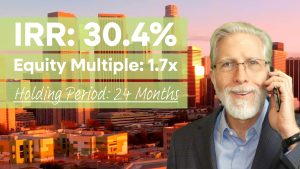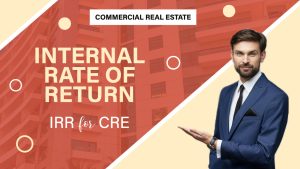Takeaways
- Office-to-apartment conversion has recently become a hot topic.
- There are specific challenges that limit which buildings can be converted.
- It’s typically feasible only when the property can be acquired at a deep discount.
Adaptive reuse of existing buildings is nothing new. In particular, conversion to multi-family residential use has been going on for decades. For example, think of all those manufacturing buildings in New York City that were converted to lofts in the 1960s and 1970s, and that’s just scratching the surface. There are apartment buildings all around the country that started out as factories, warehouses, hotels, department stores, hospitals, or schools. When I was just out of college, I lived in an apartment building in Atlanta that had been converted from an old high school. My apartment unit was one of the former classrooms. It was great!
Apartment Conversion In the Spotlight
My point here is that you don’t have to look very far to find examples of adaptive reuse. What’s surprising, however, is how the news media seems to have suddenly taken an interest in the topic. Conversion of office buildings to apartment buildings has recently become a hot topic. Within the past couple of weeks, I’ve seen it covered by cable news channels, nightly news programs on the networks, and at least a dozen news websites. What’s more, I wasn’t even looking for it.
Hey, I get it. The United States is currently experiencing two problems that might be solved with one fell swoop. Cue the news pundits. We’re about to toss up a softball.
An Answer to Our Problems
We’ve been enduring a persistent housing shortage for years, a situation that has exacerbated the lack of affordable housing options in most of our metropolitan areas. Plus, we’ve just come out of a pandemic that effectively has created a new normal for office workers. Even though there has recently been a concerted effort by a number of high-profile employers to “encourage” their employees to return to the office, hybrid and remote work still seems to be winning the battle. As a result, much of the country’s office space is now underutilized. National vacancy rates are currently at a 30-year high, according to a recent report published by CBRE.
It seems perfectly logical that converting underutilized office buildings to multi-family residential use would save the day. As such, the idea now finds itself in the spotlight as a quick and easy solution to persistent and difficult problems. If there’s one thing people love, it’s an easy way to make problems go away, and this one certainly seems to fit the bill.
A Healthy Dose of Realism
Unfortunately, it’s not as simple as everyone seems to think. Depending on local zoning ordinances, residential uses aren’t allowed in some cases. Even when they are allowed, conversions tend to be limited to older office buildings, which typically have much smaller floorplates than office building that were designed after air conditioning became commonplace. When a floorplate exceeds about 20,000 square feet, you’re essentially going to end up with dead space in the middle. That’s because apartment units need to be positioned along exterior walls. Otherwise, they won’t have any windows. Although this can sometimes be resolved by slicing sections out of the building from top to bottom, either right in the middle or along one side, it’s a very complicated and expensive undertaking.
Ceiling height can also be a problem as there may or may not be enough room to install the additional mechanical systems needed for residential uses. Think about the plumbing. Instead of having centrally located restrooms and kitchenets, which is a typical configuration on floors in office buildings, you’re going to needs dozens upon dozens of full bathrooms and kitchens, spread out across each and every floor in an apartment building. That’s only going to be possible if there’s enough room overhead to accommodate all the additional plumbing, HVAC, and other mechanical systems without tenants feeling cramped by low ceilings.
Deep Discounts Are the Key
Don’t get me wrong. I’m not suggesting that office-to-apartment conversion is never a good idea. There are cases where it makes sense, where it not only provides a solution to the aforementioned pair of problems that are currently in the spotlight, but also proves a successful project for experienced developers and investors. However, opportunities for large-scale conversions, such as downtown office buildings, have historically been relatively limited and they’re generally only feasible when the property can be acquired at a deep discount or the project benefits from tax credits or other governmentally sponsored incentives.
And that, my friends, is where things start to get interesting. As I’ve discussed in previous articles, a wave of loan maturities is coming due soon, including significant numbers of loans that are collateralized by office properties. Many of those office properties are struggling with low occupancy rates and have dropped in market value. It’s not far-fetched to assume the owners of those properties are going to have difficulty in refinancing them. Depending on how that plays out, a lot of office properties might, indeed, soon be available at deep discounts to their most recent sale prices. Were that to happen, it would usher in unprecedented opportunities for adaptive reuse, both for developers and the communities where these properties are located. Stay tuned!




















